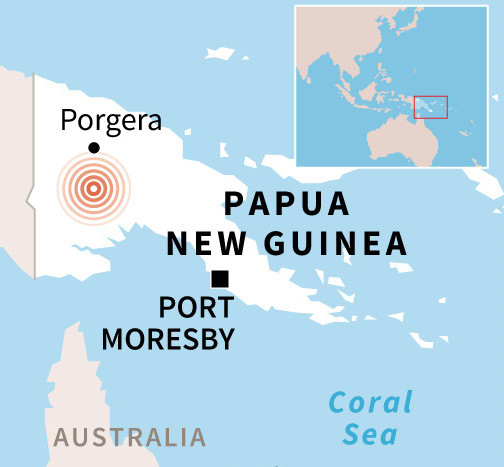
Twenty-four people have died -- including two pregnant women with their unborn children -- in tribal fighting in Papua New Guinea's lawless highlands, prompting the prime minister on Wednesday to vow to avenge the brutal killings.
Local officials said at least 24 people had been killed in Hela province, a rugged region in the west of the country, in a three-day spasm of violence between rival tribes.
Highland clans have fought each other in Papua New Guinea for centuries, but an influx of automatic weapons has made clashes more deadly and escalated the cycle of violence.
"Twenty-four people are confirmed dead, killed in three days, but could be more today," Hela provincial administrator William Bando told AFP on Wednesday. "We are still waiting for today's brief from our officials on the ground."
Bando has called for at least 100 police to be deployed to reinforce some 40 local officers.
The incident has shocked the country and recently appointed Prime Minister James Marape, who is from the province.
He vowed more security deployments and warned the perpetrators "your time is up".
"Today is one of the saddest day of my life," he said in a statement. "Many children and mothers innocently murdered in Munima and Karida villages of my electorate."
In one attack in Karida, fighters are said to have hacked to death six women, eight children -- as well as two pregnant women and their unborn children -- in a 30-minute rampage.
Local health worker Pills Kolo said it was hard to recognise some of the body parts and posted images of remains bundled together using mosquito nets as makeshift body bags.
"Gun-toting criminals, your time is up," Marape said. "Learn from what I will do to criminals who killed innocent people, I am not afraid to use strongest measures in law on you."
He noted that the death penalty was "already a law".
It is not clear what prompted the attack, but many fights are fuelled by old rivalries prompted by rape or theft, or disputes over tribal boundaries.
In nearby Enga province, a similar surge in violence prompted the establishment of a makeshift military garrison and the deployment of a company of around 100 government soldiers under the command of a Sandhurst-trained major.
Marape has not yet provided details of the security deployments but appeared exasperated by the current resources available.
"How can a province of 400,000 people function with policing law and order with under 60 policemen, and occasional operational military and police that does no more than band-aid maintenance," he said.